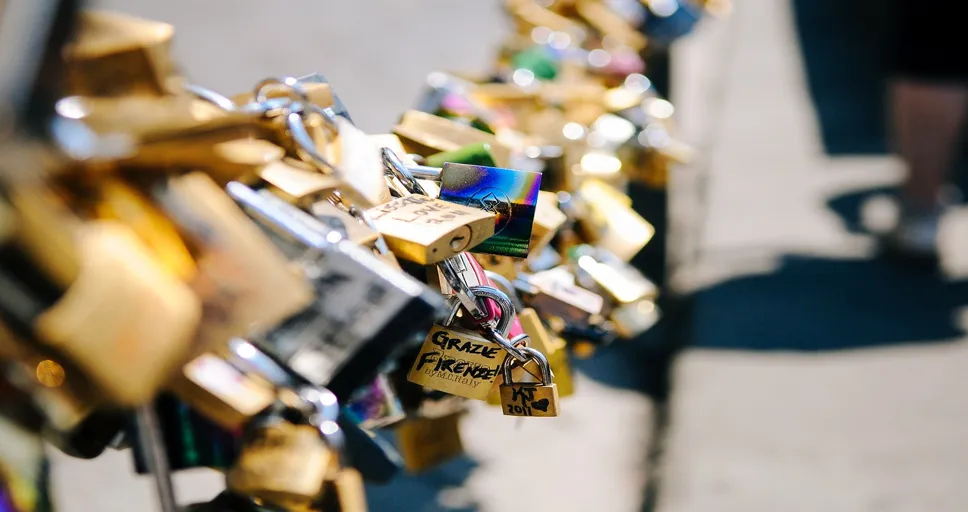So, do men like the chase? It’s the age-old question that feels a bit like asking if pineapple really belongs on pizza—everyone seems to have a strong opinion, but no clear consensus. Yet, here we are, about to dive headfirst into the whirlpool of mixed signals, adrenaline rushes, and those oh-so-frequent romantic comedies that paint pursuing as the ultimate love gesture.
In this section, we’ll peel back the layers of this curious dynamic. Is the thrill of the chase just a cliché drummed up by movies and pop culture, or is there something more psychological at play? Why does this idea of pursuit fascinate us so? And importantly, how does it fit into today’s dating scene, where the rules seem to be rewritten daily? Buckle up; it’s going to be a fun ride exploring these twists and turns.
- Biological Roots: Men are driven by ingrained biological impulses that once aided survival, with the chase providing a thrill and sense of accomplishment.
- Dopamine Effect: The chase releases dopamine, rewarding men with feelings of pleasure, making the pursuit itself rewarding.
- Cultural Conditioning: Societal norms have long reinforced that men should be the pursuers in romantic engagements, making the chase a socially expected behavior.
- Psychological Appeal: Uncertainty and the reward system in the brain make chasing a compelling game, similar to gambling, where intermittent rewards keep the pursuit exciting.
- Shifting Dynamics: Modern dating norms are moving towards mutual discovery and respect, valuing connection over conquest, reflecting changes in views on consent and equal partnership.
- Value Perception: Effort invested in the chase can increase the perceived value of the relationship, similar to effort justification in other areas of life.
- Mutual Enjoyment: The chase is most enjoyable and appropriate when it’s reciprocal and both parties are engaged in this dynamic willingly.
Table of Contents
Exploring Why Do Men Like the Chase

Ever wondered why some men seem to thrive on the adrenaline-fueled rollercoaster of the chase? Sure, the phrase “do men like the chase” might conjure images of prehistoric man running after a woolly mammoth, but it’s actually not that far off from modern dating dynamics (minus the mammoths, of course).
The chase, as it turns out, isn’t just about proving prowess or flaunting male ego. There’s a touch of biology at play here. Back in the day, the ability to pursue and ‘win’ was crucial for survival and mating. Fast forward a few thousand years, and while the context has dramatically changed, that ingrained thrill of pursuit persists. This isn’t just about a guy trying to impress you by not texting back for three days (though, let’s be honest, that’s part of the modern script). It’s about the inherent joy and excitement derived from pursuing something that isn’t immediately attainable.
Psychologically speaking, the chase injects a dose of dopamine, the feel-good chemical, into a man’s brain. This little neurochemical loop of pleasure and reward makes the chase intoxicating. Every small victory, whether it’s a returned smile, a laugh at a joke, or a positive response to a dinner invitation, sparks joy. This doesn’t just apply to romantic pursuits—think about the last time you chased down a hard-to-find collectible or nabbed the last ticket to a sold-out show. Felt great, right?
But let’s sprinkle a little reality on this dopamine-fueled fairy tale. The chase is fun when it’s a game both parties are enjoying. It’s like a dance where both partners know the steps and are in sync with the music. When it becomes one-sided, however, the music stops, and it’s just one person dancing alone, looking a bit silly.
This brings us to the societal angle. Cultural narratives have long romanticized the idea of the persistent suitor who overcomes all obstacles to win their beloved’s heart (cue every rom-com climax where the protagonist runs through the airport to stop that plane). Such stories perpetuate the idea that persistence pays off, wrapping the chase in a cloak of nobility and romance.
In contemporary times, however, the script is getting flipped. With growing discussions around consent and respect, the narrative is shifting from pursuit to partnership. The chase is becoming less about the conquest and more about mutual discovery and respect.
So, as we dig into this phenomenon, it’s clear that while the chase might be thrilling, it’s also evolving. It’s no longer just about the catch or the conquest. It’s about connection. And isn’t that what we’re all chasing after in the end?
The Psychology Behind the Chase
Let’s dig into the big ‘why’ behind the question, “Do men like the chase?” and tap into the psychological thriller that is the human mating dance. It’s a bit like a game of tag but with more adult stakes and, sadly, a lack of actual playgrounds.
First up, there’s the thrill of uncertainty. In psychology, this is often more enticing than the sure thing—known as the uncertainty principle. It’s the same reason why people binge-watch TV shows or can’t stop scrolling through social media; the ‘what’s next?’ factor is addictive. When a man doesn’t know if his affections will be reciprocated, each interaction with the object of his pursuit becomes loaded with potential. Every text sent feels like dropping a line in the ocean and waiting to see what bites.
Then, there’s the reward system in our brains. Engaging in the chase can light up the same regions of the brain that light up during a win at a slot machine. When a man chases, and that chase is rewarded—even intermittently—it reinforces the behavior, making him want to continue the pursuit. This dopamine-driven feedback loop is what casinos count on, and maybe singles bars do too.
But it’s not just about biology. There’s a complex layer of social conditioning at play. Men are often taught from a young age that being assertive and taking the lead in romantic pursuits is the norm. This can shape how they approach potential partners, viewing the chase not only as a personal thrill but as a socially expected role to fill. The chase becomes a culturally endorsed script that men feel they need to follow, lest they lose their chance at romance or, worse, their social standing.
Another twist in the psychological narrative is the value we assign to that which we work hard to obtain. This is known as the effort justification paradigm. If a man has to put in a significant amount of effort to win someone over, he might perceive that person as more valuable or desirable. It’s the romantic equivalent of sweating over a gourmet meal; somehow, it just tastes better than a microwave dinner, right?
Of course, the psychology of the chase isn’t just about the chasers. It’s also about those being chased and how they react, which in turn influences the chaser’s actions and perceptions. It’s a dance of push and pull, where both parties read and react to each other’s moves, often based on deeply ingrained psychological scripts.
So, while it might seem like chasing is all fun and games, beneath the surface, there’s a whole labyrinth of psychological impulses guiding the pursuit. It’s fascinating, a bit wild, and undeniably human. And whether we like it or not, understanding these dynamics can offer us insights into not just romantic relationships, but human behavior at large.
Balancing the Chase in Modern Relationships

In today’s world, figuring out the rules of engagement when it comes to romance can be as confusing as assembling IKEA furniture without the instruction manual. And as we navigate these complex social landscapes, the age-old question of “do men like the chase?” comes up, begging us to ask how we balance this traditional pursuit with modern relationship dynamics.
Let’s face it, the chase has always had its allure. There’s something undeniably exciting about the pursuit of someone’s affection. But in today’s dating scene, where respect and consent are paramount, the chase must evolve from a full-throttle pursuit into something more nuanced.
The key? Communication, folks. This isn’t just about sending a flurry of texts or crafting the perfect Snapchat streak. It’s about open, honest dialogue about what each person is looking for in a relationship. Does the chase feel fun, or does it feel like a pressure cooker? The answer to that could change how a couple approaches everything from texting etiquette to how they plan dates.
Then there’s the concept of mutual chase—yes, it’s a thing. This is where both parties play an active role in pursuing one another, creating a dynamic where the thrill of the chase is shared rather than one-sided. It’s less about one person running after another, and more about a playful back-and-forth that feels engaging for both parties.
However, it’s crucial to read the room. Not everyone enjoys the chase, and for some, it can feel overwhelming or even disingenuous. Some might wonder, if someone is always playing hard to get, when do you get to stop playing and start getting real? Recognizing when to shift from the pursuit to a more steady and stable interaction is crucial in not just capturing interest, but in building a connection that’s deeper than the chase.
Modern relationships thrive on balance. They require give-and-take, where both parties feel valued not just for the excitement they can provide but for the quieter moments of connection. It’s about finding joy in both the pursuit and in the peace of having caught up with each other.
Navigating this balance doesn’t come with a one-size-fits-all strategy. It’s about individuals figuring out what works best for them—sometimes through trial and error—and adapting as their relationship grows and changes. It’s about making sure that the chase doesn’t overshadow the potential for a genuine, fulfilling relationship.
In conclusion, while the question “do men like the chase?” might remain relevant, the more pertinent question today is how both partners can engage in a chase that enriches their relationship, respects boundaries, and ultimately lays the groundwork for deeper intimacy. It’s about the chase leading somewhere, not just running in circles.
- Men often enjoy the chase in dating due to a mix of biological instincts and psychological rewards, like dopamine boosts from uncertainty and success.
- The chase involves both excitement from pursuing something challenging and the cultural expectation for men to be assertive in romantic pursuits.
- Societal views on the chase are evolving, shifting from conquest-focused narratives to emphasizing mutual respect and consent.
- Understanding the psychological and cultural dynamics of the chase can provide insights into broader human behaviors and relationships.
Why Do Men Love the Chase?
Frequently Asked Questions

Do men enjoy the thrill of the chase?
Many men enjoy the thrill of the chase because it provides excitement and a sense of accomplishment when pursuing someone they are interested in.
Why do guys lose interest after the chase?
Guys may lose interest after the chase if the pursuit was more about the challenge than genuine interest in building a relationship, or if the reality doesn’t meet the expectations they had during the chase.
Conclusion
So, after rummaging through the fascinating layers of “do men like the chase,” where does that leave us? Well, the chase, it seems, isn’t just a straightforward sprint but more of a parkour course with emotional and psychological hurdles.
Throughout our exploration, we’ve seen how the chase taps into deep-seated psychological drives and social scripts that paint it as a necessary part of the male romantic experience. Yet, as we’ve also discovered, the real thrill of the chase might not just be about the pursuit itself, but what it represents: excitement, challenge, and the hope of a rewarding relationship at the finish line.
But as much fun as the chase can be, let’s remember the importance of evolving these dynamics to fit into the modern landscape of love and dating. It’s about finding that sweet spot where the chase neither dominates nor diminishes the relationship, but enhances it, making sure it’s enjoyable and respectful for all involved.
In the end, whether or not men like the chase may be less about a unanimous yes or no and more about understanding why they might, and how that can be harmoniously balanced in relationships today. The key takeaway? It’s great to enjoy the chase, as long as we’re clear about why we’re running and where we’re heading—hopefully, towards a meaningful connection.
And just like any good chase scene, the best ones end with a bit more understanding and maybe a few laughs. So, whether you’re the chaser, the chasee, or just a bystander enjoying the show, remember: the pursuit is only worth it if it leads to a happy ending.



